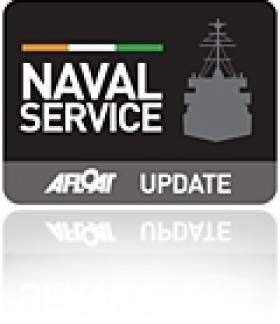Displaying items by tag: Niger Delta
Emer’s Short Journey Marks Her New Role to Far Distant Shores
#EmerNIGERIA – The former Naval Service OPV L.E. Emer took the short journey between the Naval Base on Haulbowline Island to Cork Dockyard Ltd today for upgrading work for her new owners, writes Jehan Ashmore.
The 65m vessel was brought at public auction last month for €320,000 by Nigerian based Uniglobe Group and is to be used for work in the Niger Delta.
For now she is likely to remain at the dockyard into next month before finally departing from the Rushbrooke facility. She was launched in 1978 from the same site when Verolme Cork Dockyard had run the shipbuilding business that saw five patrol vessels commissioned for the Naval Service.
Her new owner Mr. Imhobio who is a resident for parts of the year in London had said the ship may call to capital. The decision to make an en-route call to the capital though remains subject to the cost of the diversion in both time and miles as part of her repositioning voyage to Nigeria.
Navy’s Retired LE Emer Sold for Role in Niger Delta
#EmerNIGERIA– As previously reported, the former Naval Service vessel LE Emer, which stood down last month after 35 years has been sold to a new owner who says he's unsure on private or security role for the vessel in the Niger Delta.
The vessel was sold at auction in Cork yesterday for €320,000 to London based Nigerian businessman Cyprian Imobhio.
Mr. Imobhio, chief executive and managing director of Uniglobe Group, said he had got the LE Emer, stripped of its armaments, for a good price, but he was reluctant to say it was a bargain. "It was a good price - but I would have preferred to get her for €200,000" he said with a smile.
Speaking following the auction at the Carrigaline Court Hotel in Co Cork where he saw off two rival bidders after bidding rose quickly from an opening gambit of €50,000, Mr Imobhio said he was impressed by the LE Emer when he first saw her at Naval Service HQ at nearby Haulbowline.
For much more on this story, The Irish Times reports.

























































